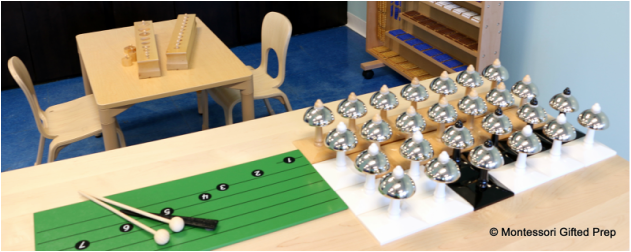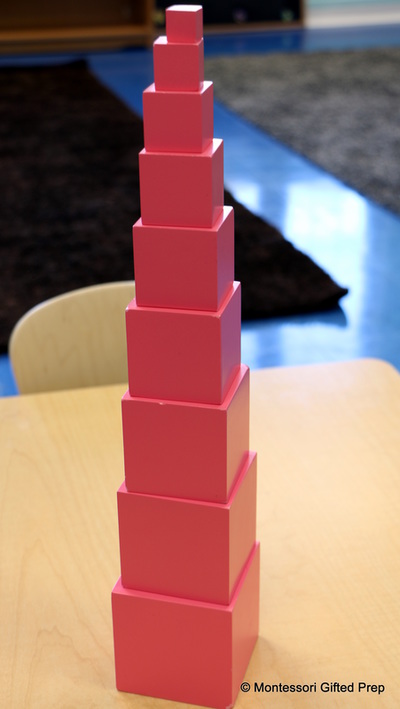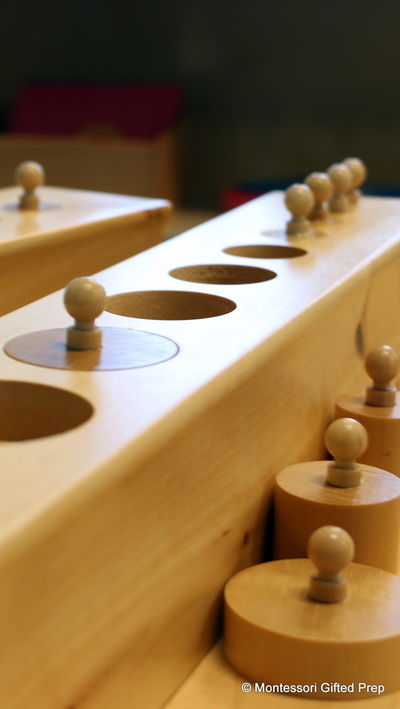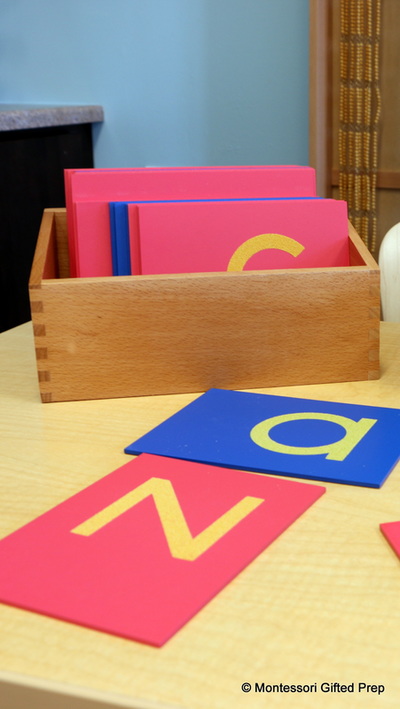
Overview
Montessori Gifted Prep offers a preschool education for the 21st century, built on the core educational principles of Maria Montessori. We help to develop children academically, socially and emotionally, providing them with self-awareness about their strengths and weaknesses, a sense of responsibility for their choices and actions, a respectful approach to working with others, and an independent spirit that motivates them to pursue their own talents and passions.
Our Montessori program is designed for children 2 to 6 years of age. Each classroom is designed for children 2-6 years of age. The curriculum allows for in-depth learning as well as a broad exposure to humanities, natural sciences, technology, and the arts. Students will be exposed to Spanish and Mandarin at age 2. Children learn independently and collaboratively. They have small-group lessons with teachers as well as one-on-one instruction.
Preschool years are a time of joyful discovery. Children are exploring their world and gaining control of their bodies. They are learning how to be independent, how to make appropriate choices, and how to organize information. Their personality is emerging. The program at Montessori Gifted Prep is nurturing. Children find their passions, learn to respect and listen to others, and develop the basis for academic and social skills according to their own timetable.
Children will gain exposure to a series of brain development games, puzzles and engaging academic activities designed to improve students' critical thinking, cognitive and listening skills, concentration, confidence and abilities in reading, pattern decoding, phonics, math reasoning, logical thinking, visual perception and more.
In our classrooms, children pursue a variety of activities. This is their “work,” and they learn from an early age that “work” is not drudgery, but a satisfying, often joyous pursuit. It can mean practicing a skill, creating artwork, exploring patterns and making connections, collaborating with friends on building projects or solving problems, or taking care of their classroom environment.
In their close observations, teachers watch the emotional and social development of the children, and work with parents on instilling independence, self-reliance, and respect to others.
At Montessori Gifted Prep, the children's activities fall into six categories:
Practical Life. These are everyday, household activities such as personal grooming, cleaning, and food preparation. The aim of the Practical Life activities is the coordination of fine- and gross-motor skills. In turn, the child's mastery of his movements leads to independence and to the ability to sustain concentration.
Sensorial Exercises. This is a set of materials designed to develop the child's five senses to their fullest. The Sensorial Materials clarify and give nomenclature to all the impressions taken in by the nervous system.
Language. The language activities enrich the child's vocabulary, develop his verbal communication skills, and lead him to writing and reading through phonics. Spanish and Mandarin languages are explored via live webcam technology with respective countries.
Mathematics. The Montessori math materials are a hands-on experience with quantities, arithmetic, and graphic notation. They gradually lead the child from the concrete to the abstract, thus ensuring a deep-rooted comprehension of math concepts.
Cultural Subjects. The children are exposed to nomenclature in the areas of botany and zoology, physical and political geography, history and civics, art and music, and more.
Social Interactions. Social development is as important as physical and intellectual development in the Montessori classroom. Grace and courtesy are regular parts of the day. Above all, the children's freedom has as its limit the welfare of the community and the environment.
We understand that each preschooler is unique and are at different stages of development, so our objective is to not to compare their abilities with one another, but observe their interests and build their individualized lesson plans around them.
Montessori Gifted Prep offers a preschool education for the 21st century, built on the core educational principles of Maria Montessori. We help to develop children academically, socially and emotionally, providing them with self-awareness about their strengths and weaknesses, a sense of responsibility for their choices and actions, a respectful approach to working with others, and an independent spirit that motivates them to pursue their own talents and passions.
Our Montessori program is designed for children 2 to 6 years of age. Each classroom is designed for children 2-6 years of age. The curriculum allows for in-depth learning as well as a broad exposure to humanities, natural sciences, technology, and the arts. Students will be exposed to Spanish and Mandarin at age 2. Children learn independently and collaboratively. They have small-group lessons with teachers as well as one-on-one instruction.
Preschool years are a time of joyful discovery. Children are exploring their world and gaining control of their bodies. They are learning how to be independent, how to make appropriate choices, and how to organize information. Their personality is emerging. The program at Montessori Gifted Prep is nurturing. Children find their passions, learn to respect and listen to others, and develop the basis for academic and social skills according to their own timetable.
Children will gain exposure to a series of brain development games, puzzles and engaging academic activities designed to improve students' critical thinking, cognitive and listening skills, concentration, confidence and abilities in reading, pattern decoding, phonics, math reasoning, logical thinking, visual perception and more.
In our classrooms, children pursue a variety of activities. This is their “work,” and they learn from an early age that “work” is not drudgery, but a satisfying, often joyous pursuit. It can mean practicing a skill, creating artwork, exploring patterns and making connections, collaborating with friends on building projects or solving problems, or taking care of their classroom environment.
In their close observations, teachers watch the emotional and social development of the children, and work with parents on instilling independence, self-reliance, and respect to others.
At Montessori Gifted Prep, the children's activities fall into six categories:
Practical Life. These are everyday, household activities such as personal grooming, cleaning, and food preparation. The aim of the Practical Life activities is the coordination of fine- and gross-motor skills. In turn, the child's mastery of his movements leads to independence and to the ability to sustain concentration.
Sensorial Exercises. This is a set of materials designed to develop the child's five senses to their fullest. The Sensorial Materials clarify and give nomenclature to all the impressions taken in by the nervous system.
Language. The language activities enrich the child's vocabulary, develop his verbal communication skills, and lead him to writing and reading through phonics. Spanish and Mandarin languages are explored via live webcam technology with respective countries.
Mathematics. The Montessori math materials are a hands-on experience with quantities, arithmetic, and graphic notation. They gradually lead the child from the concrete to the abstract, thus ensuring a deep-rooted comprehension of math concepts.
Cultural Subjects. The children are exposed to nomenclature in the areas of botany and zoology, physical and political geography, history and civics, art and music, and more.
Social Interactions. Social development is as important as physical and intellectual development in the Montessori classroom. Grace and courtesy are regular parts of the day. Above all, the children's freedom has as its limit the welfare of the community and the environment.
We understand that each preschooler is unique and are at different stages of development, so our objective is to not to compare their abilities with one another, but observe their interests and build their individualized lesson plans around them.
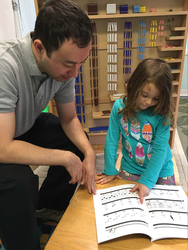
Test Preparation & Test Taking Skills
Although children at Montessori Gifted Prep are not formally tested, children will be observed and progress will be tracked. However, we believe that it is important for children to begin to learn how to handle taking tests. As much as most people dislike it, over the course of our lives we take many, many tests. What starts as maybe a simple spelling test in first grade, ends up turning into more complicated tests in high school or college. No matter the reason a test is being taken, it is imperative for a person to have great skills for test taking. There are several techniques that can be used before, during, and after a test to make sure the test result reflects your child's true knowledge. Being good at taking tests is not something that comes naturally to everyone.
We believe the best way to maximize your child's performance on tests such as the Selective Enrollment Elementary School exam is by preparing, staying organized, and practicing. The more your child is accustomed to sitting for a period of time, and answering test questions, the more comfortable your child will feel when he/she actually sits down to take the test.
We will work towards improving anxiety and subject test areas including nonverbal and verbal areas for the Gifted and Classical exam. We will practice nonverbal measures including reasoning and problem-solving testing skills through pattern completion, reasoning by analogy, serial reasoning, and spatial visualization question types. We will prepare for verbal measures including verbal comprehension and verbal reasoning through aural reasoning, following directions, and arithmetic reasoning question types.
In addition to practice tests, we offer child assessments, tutoring, and advisory services to help navigate the admissions and education process for Selective Enrollment Elementary Schools. These services are included as part of the tuition.
*Please note that Test Preparation & Test Taking Skills is optional and parents can opt out if desired.
